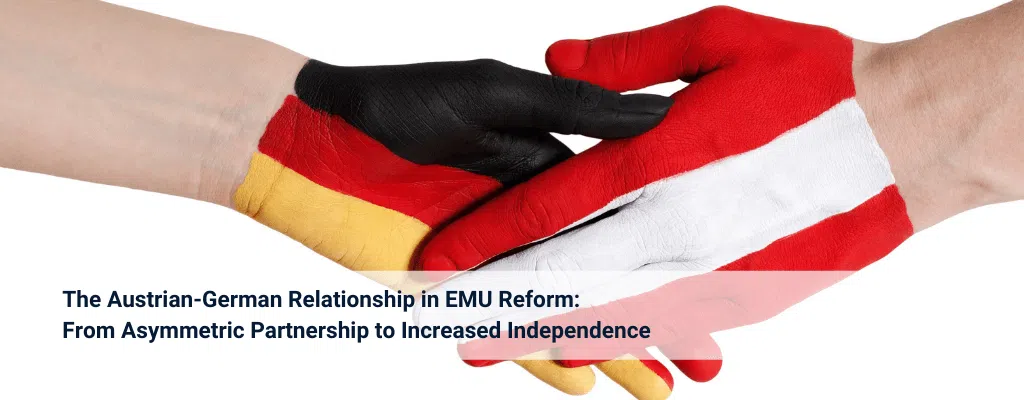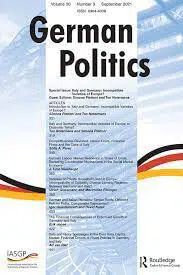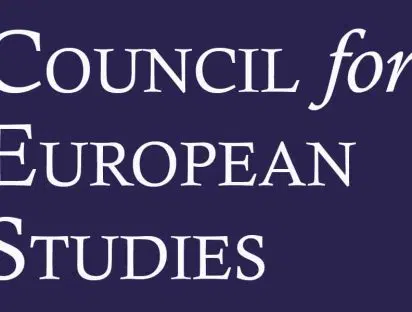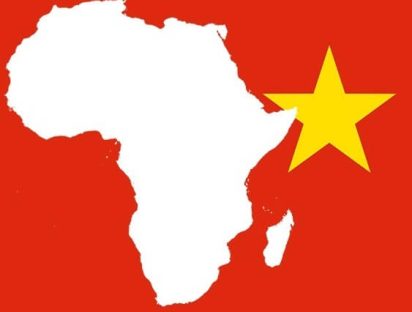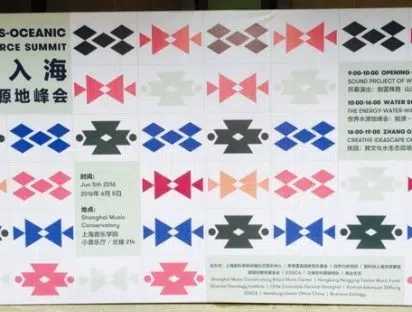Austria and Germany have a long-standing relationship sharing similar cultural and political characteristics. Despite their significant economic bonds, the differences between the two states have recently increased and go far beyond their disparity in size, which is a visible factor of an imbalance in their relationship.
With their article, Sebastian Heidebrecht and Magnus G. Schoeller contribute to a German Politics special issue on the role of smaller states in the Economic and Monetary Union (EMU). They provide an analysis of the evolution of the dynamics between both countries and point out various techniques Austria has used to pursue its own path.
Austria and Germany – slowly drifting apart?
The authors build on a theoretical framework that Schoeller and Falkner developed to analyse the relationship of smaller EMU member states and Germany (2021, German Politics). They develop three hypotheses about Austria’s strategies towards Germany:
- Austria acts as a ‘fence sitter’ if it shares positions with Germany. If Germany changes its position, Austria will make use of ‘foot-dragging’ strategies.
- Austria relies on persuasion strategies rather than hard bargaining in its interaction with Germany.
- Austria opts for bilateral rather than multilateral strategies when interacting with Germany.
The Euro crisis turned out to be the turning point of the Austria-Germany partnership.
During the fast-burning phase, between 2010 and 2012, Austria acted as assumed, and mostly followed Germany’s position on fiscal policy. It transitioned from its status of fence-sitter to an independent position during the low-burning phase, between 2012 and 2016, when it came to dealing with the Banking Union. Austrian independence became increasingly perceptible after the crisis reform, and even more so during the EU’s Coronavirus response.
The findings of this research suggest that international aspects are not the only reasons and that domestic factors need to be considered to explain this evolution of German-Austrian relations.
Domestic politics as a factor for change
The analysis of several events and positions have made it possible to confirm or invalidate the hypotheses put forward by the authors (see Table 1), with sometimes both confirmation and invalidation for the same assumption, as in the following example: given the power asymmetry between the two countries, the authors expected Austria to rely on persuasion strategies rather than on firm opposition to Germany. While this is generally the case, the analysis shows that there is a notable gap in this strategy when it comes to Coronavirus crisis management and the recent Franco-German recovery plan. For the first time, Austria opposed Germany (and France) and formed a counter-coalition, the “Frugal Four”. Since the power asymmetry has not changed, the authors explain this shift in behaviour by the presence of an increasingly assertive government under Chancellor Kurz which addresses the concerns of Eurosceptics and defends ‘national interests’ against European integration.
Austrian domestic politics is, therefore, a factor to be considered when analysing Austrian-German relations. The article concludes with a rather rhetorical question of whether or not the Austrian government’s inward-looking strategy does not ultimately undermine the interests it originally sought to defend.

Why did you find the relationship between Germany and Austria interesting to investigate? Are you interested in other countries’ relationship dynamics?
The Austrian-German relationship is of particular interest because the countries have a lot in common, for example, they are considered creditor states in the Economic and Monetary Union (EMU), but are increasingly known for different positions on European economic policy. Our question then was why this is so and how Austria, as a small state, tries to pursue its interests in the field of European Union (EU) politics. From my point of view, this is interesting because small states like Austria are often overlooked in the analysis of EU policy, which often emphasises the important role of larger states such as France and Germany in particular. However, small states play a role, as can be seen in the case of the so-called New Hanseatic League in EU negotiations on the coronavirus response. In order to achieve a common European position on such important issues as foreign policy, migration and environment policy, progress will most likely only be made if the EU succeeds in including the legitimate interests of the smaller states. In this context, our article is part of a special edition on the role of smaller states in the EMU.
Will you answer the question asked at the end of the article (whether Austria would not pursue its preferences better by assuming collective responsibility for the European integration project in the form of a self-confident partnership with Germany, rather than by defending its current benefits in a persistently incomplete EMU)?
That’s a good question. In fact, the question is posed a bit rhetorically, which already suggests that, as a co-author, I am of the opinion that Austria actually has more to gain from building a more robust EMU than potential, rather short-term, electoral advantages would suggest. For example, this is the case when looking at the very high degree of interdependence of the Austrian economy and the EU, which seems to be even higher than that of Germany, the ‘world export champion’. Furthermore, the most pressing current issues such as the regulation of big tech, global warming, and geopolitical threats can, in my opinion, only be resolved at a supranational, i.e. European, level. Austria should therefore try to form coalitions and support those political projects that promote effective European integration, for example, in order to achieve a more robust EMU.
Heidebrecht, Sebastian/Schoeller, Magnus (2021): The Austrian-German Relationship in EMU Reform: From Asymmetric Partnership to Increased Independence, German Politics, online first: https://doi.org/10.1080/09644008.2021.2005029
Dr Sebastian Heidebrecht is a postdoctoral researcher at the Centre for European Integration Research (EIF), Department of Political Science, University of Vienna, and a member of the ESSCA EU*Asia Institute.
His research focuses on current issues of European integration, in particular EU digital policy and European economic and monetary policy.

